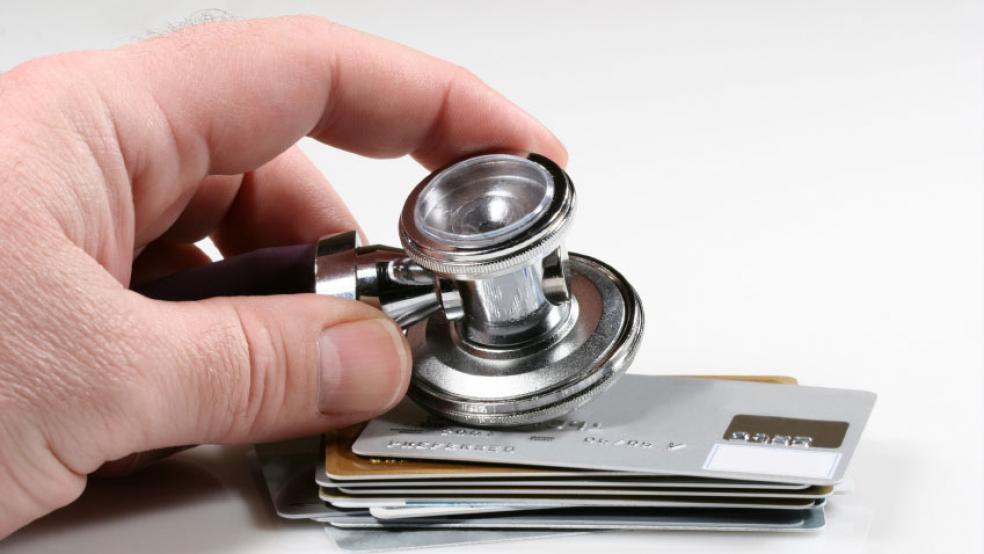If you think that a medical credit card could help you finally afford that dental work or plastic surgery you’ve been longing for, think again. Medical credit cards are far riskier than many consumers believe.
Health care providers partner with card issuers and offer them to patients as one way to have their bills paid faster. The cards allow patients to have some elective procedures at 0 percent interest – at first. But once the honeymoon period is over, rates can skyrocket and in some cases a deferred-interest mechanism can mean you owe far more than you ever thought on your card.
Although fee disclosure and transparency issues surrounding medical credit cards and interest rates have improved in the last year due to the Consumer Financial Protection Bureau, you can still be caught off guard by higher-than-expected payments.
Related: 5 Reasons to Pay Off Your Credit Card Debt Now
Medical credit cards are typically marketed to people (and pet owners) undergoing procedures not covered by health insurance, most often by the dentist, the plastic surgeon, the dermatologist or even the veterinarian. They’re offered as installment plans for those with no health insurance at all. More than 4 million consumers use them, and more than 170,000 health care and veterinary providers accept these cards, according to a recent report from the Government Accountability Office.
In 2013, the CFPB received hundreds of consumer complaints alleging unclear communication about the terms of some deferred-interest credit cards and other inadequate disclosures. Consumers also complained that staff members at some providers’ offices were poorly trained. Some staff even admitted to being confused by the product, according to the GAO report.
Many consumers believed the cards were interest free, yet they were charged 26.99 percent interest instead; or they didn’t know when the 0 percent interest rate period would end. Several medical credit cards also charged deferred interest, which accrued from the beginning if a payment was missed.
Related: Why High Debt Could Mean Financial Stability
“Interest was applied to the entire loan when consumers did not pay the bill in full by the end of the six-to-24-month promotional period,” wrote Consumer Action, a consumer advocacy nonprofit, in a July report about medical credit cards. “So a consumer who charged a $5,000 dental bill, and who had reduced her balance to $1,500 when the interest-free period expired, would nonetheless pay interest on the full $5,000.”
Last year, the CFPB sued CareCredit, part of GE Capital Retail Bank and one of the main issuers of medical credit cards. It ordered the issuer to refund about $34 million to more than a million consumers. CareCredit and its parent company also entered into a settlement agreement with the New York attorney general, which required them to provide a three-day cooling–off period to prohibit certain charges of $1,000 or more on a CareCredit card within three days of an in-office application, among other demands.
Yet such requirements for added disclosure and transparency have done little to help consumers.
“Despite laws that require lenders to give consumers the information they need to compare financing offers, it’s often virtually impossible to get the rates and terms for some medical credit cards,” said Linda Sherry, Consumer Action’s director of national priorities, in a press release. “How can consumers make an informed decision?”
If you have a medical credit card, Consumer Action recommends making more than the minimum payments during the deferred-interest period to make sure you pay off your entire balance by the end of the 0 percent period. It also suggests knowing exactly when the no-interest period expires and pay in full before that date.
Or – just bypass these cards altogether.
Top Reads from The Fiscal Times:


